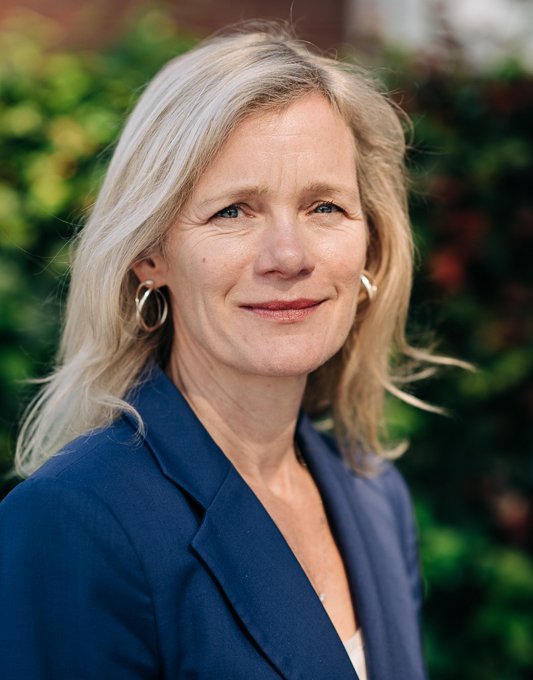MedEd Studio: Wellness: System or individual – who’s responsibility?
In this conversation, Liselotte Dyrbye discusses system or individual – who’s responsibility?
Wellness: System or individual – who’s responsibility?
I twiddle my head. Softly. Not too much so my hesitation become obvious. But still. In my inner world I hear the phrase “so what?” eco. Well, as you all know, over the last decade or so there has been an increased concern about burnout and mental health issues among health care professionals. There is significant evidence about the correlation between burnout among health care workers and patient safety, malpractice, mortality, and patients’ satisfaction. Other data provide evidence that the burnout level of hospital nurses can predict health care associated infections among patients! Ugh. On an individual level it has also been showed a 25 percent risk of alcohol or other drug abuse and a more than 200% increased risk of suicidal ideation.
Over the years, this has been framed as an individual problem. You, or I, need to stay fit to survive in a broken system. Mindfulness, hot yoga, health dietary regimes, healthy sleeping habits and exercise have all been highlighted as factors to mitigate all the pressure in the clinical working (and learning) environments. Bottom-line: you and I must stay fit! Full stop. Our call – only. All that said, studies from the US suggests that i.e physicians still exhibit higher levels of resilience compared to other groups but still the numbers of mental health issues are dire.
The conversation has now, finally, started to shift towards the system level in health care organization and the clinical work environment as such. As an example. A whole new group of administrators (!!!) is entering the stage as the new Knights of Wellness. Very suitably called wellness officers (or chief wellbeing officers, CWOs!). What roles and powers they will have remain to playout. Also, a new terminology such as occupational distress is being introduced to suggest that the many of the mental health problems and burnout issues, lay in the workplace and it is NOT an individual problem as such. A national consensus study by the Academy of Medicine in the US from 2019 clearly put the system level issues on the agenda. In this report, a conceptual framework was launched connecting the role of an individual to the system. This opens the doors for a more sober and better-balanced conversation. System and individual. Not simply individual.
However, we need to be aware of lip service. Desperate senior health care executives are running a broken systems with an epidemic of mental health issues among its frontline staff, even more so after the C-19 pandemic. The question remains – how much of these new initiatives are tokenism? What effects can we expect to envision in the future for the individual health care worker, after the declaration of system responsibility? The very good news is that system level issues are now clearly on the international and institutional agendas, which is an important first step. Maybe I should not be too skeptical about the real impact this might have in the future. I certainly strongly support the project to reframe the conversation to broken systems rather than pushing individual health care workers to find their own strategies to survive.
- Jonas Nordquist

Liselotte Dyrbye
Dr Dyrbe is Professor of Medicine and Senior Associate Dean of Faculty and Chief Well-Being Officer at the University of Colorado School of Medicine.
References
Whole-system approaches to improving the health and wellbeing of healthcare workers: A systematic review.
Brand SL, Thompson Coon J, Fleming LE, Carroll L, Bethel A, Wyatt K
PLoS One 2017 ;12(12):e0188418
Effect of a Professional Coaching Intervention on the Well-being and Distress of Physicians: A Pilot Randomized Clinical Trial.
Dyrbye LN, Shanafelt TD, Gill PR, Satele DV, West CP
JAMA Intern Med 2019 Oct;179(10):1406-1414
Burnout Among Health Care Professionals: A Call to Explore and Address This Underrecognized Threat to Safe, High-Quality Care. By Lotte N. Dyrbye, Tait D. Shanafelt, Christine A. Sinsky, Pamela F. Cipriano, Jay Bhatt, Alexander Ommaya, Colin P. West, and David Meyers
Taking Action Against Clinician Burnout: A Systems Approach to Professional Well-Being
National Academies of Sciences, Engineering, and Medicine; National Academy of Medicine; Committee on Systems Approaches to Improve Patient Care by Supporting Clinician Well-Being. Washington (DC): National Academies Press (US); 2019-10-23;

Jonas Nordquist
Jonas Nordquist, PhD is a medical educationalist. He is the director for Karolinska Institutet’s Prize for Research in Medical Educations Fellows (KIPRIME Fellows).
His research focuses on leadership and implementation of change in health professions education. He has been deeply involved in research and development of physical learning spaces in Sweden and globally.
